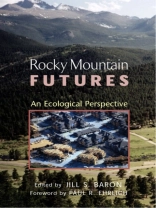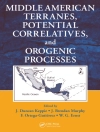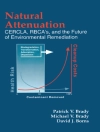The Rocky Mountain West is largely arid and steep, with ecological scars from past human use visible for hundreds of years. Just how damaging were the past 150 years of activity? How do current rates of disturbance compare with past mining, grazing, and water diversion activities? In the face of constant change, what constitutes a "natural" ecosystem? And can a high quality of life be achieved for both human and natural communities in this region.Rocky Mountain Futures presents a comprehensive and wide-ranging examination of the ecological consequences of past, current, and future human activities in the Rocky Mountain region of the United States and Canada. The book brings together 32 leading ecologists, geographers, and other scientists and researchers to present an objective assessment of the cumulative effects of human activity on the region’s ecological health and to consider changes wrought by past human use. This combined view of past and present reveals where Rocky Mountain ecosystems are heading, and the authors project what the future holds based upon current economic and social trends and the patterns that emerge from them. The book:examines the biogeographic and paleoenvironmental setting and historical climate that have shaped Rocky Mountain ecosystemstraces the direct human influences on landscapes and ecosystems over the past 150 yearsexplores the cumulative effects of past, present, and projected future human activities on tundra, subalpine and montane forests, valleys, grasslands, and watersoffers case studies that illustrate specific examples of human influence and current efforts to restore the environment Case studies focus on northern New Mexico; Summit County, Colorado; Flathead Valley, Montana; and Alberta, Canada. Among the contributors are Craig D. Allen, N. Thompson Hobbs, Linda L. Joyce, Robert E. Keane, David Schindler, Timothy R. Seastedt, David Theobald, Diana Tomback, William Travis, Cathy Whitlock, and Jack Stanford. The United Nations has proclaimed 2002 as the International Year of Mountains to increase international awareness of the global importance of mountain ecosystems. The case-based multidisciplinary approach of this book constitutes an important new model for understanding the implications of land-use practices and economic activity on mountains, and will serve a vital role in improving decisionmaking both in the Rocky Mountains and in other parts of the world that face similar challenges.
Baron Jill Baron
Rocky Mountain Futures [EPUB ebook]
An Ecological Perspective
Rocky Mountain Futures [EPUB ebook]
An Ecological Perspective
Купите эту электронную книгу и получите еще одну БЕСПЛАТНО!
язык английский ● Формат EPUB ● страницы 352 ● ISBN 9781597263146 ● редактор Baron Jill Baron ● издатель Island Press ● опубликованный 2012 ● Загружаемые 6 раз ● валюта EUR ● Код товара 5927668 ● Защита от копирования Adobe DRM
Требуется устройство для чтения электронных книг с поддержкой DRM












